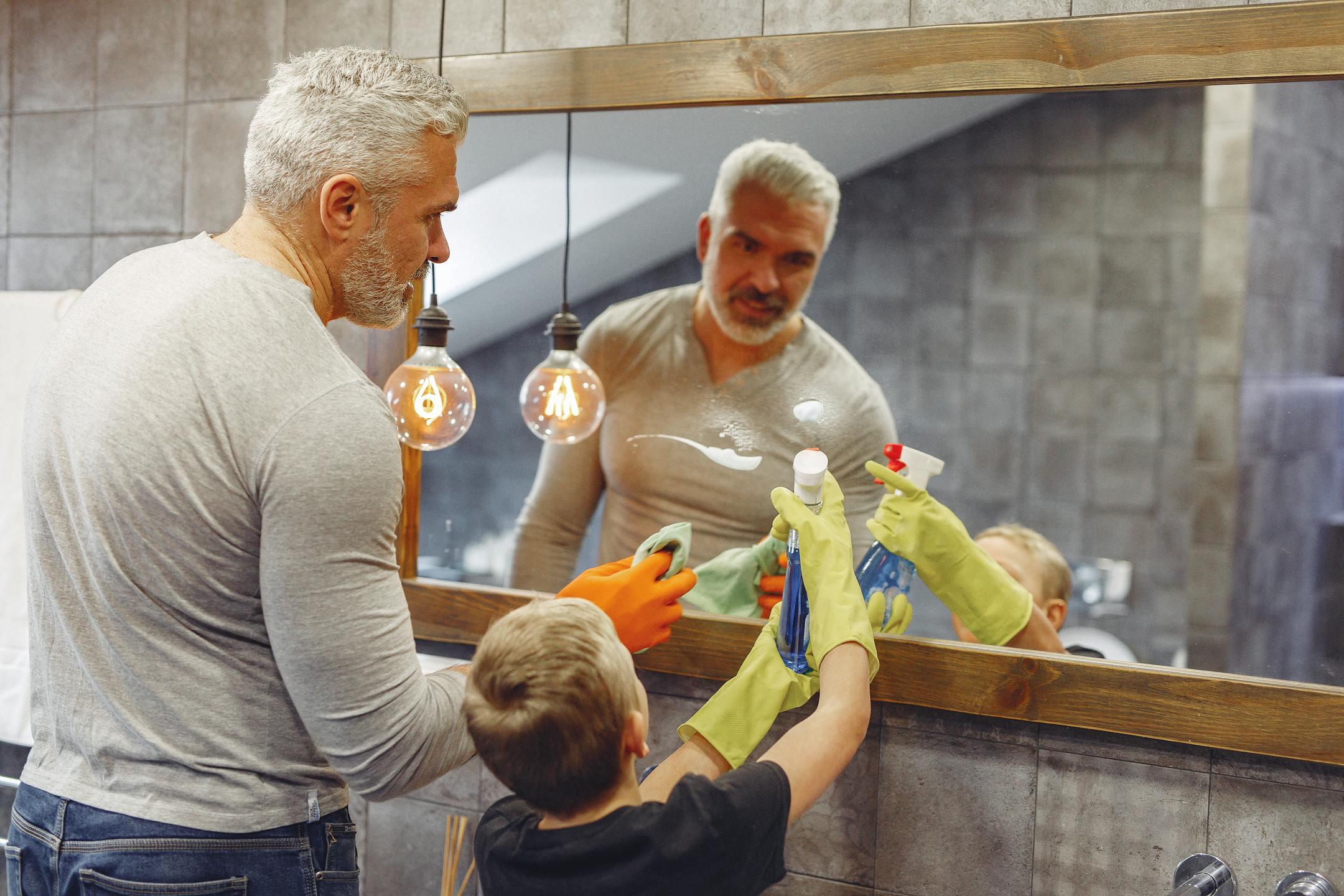
The Metaphor of Maintenance
In the cleaning industry, there’s no such thing as a “final clean.” You can clean a space today, but dust will settle again, clutter will creep back, and maintenance will always be required. This endless cycle is a powerful metaphor for life. Just like a clean space doesn’t stay perfect forever, success, growth, and fulfillment require ongoing effort.
Personal growth is much the same. There’s no final, perfect version of ourselves to achieve. Instead, progress comes from small, consistent actions that accumulate over time. Each chore—whether sweeping the floor or organizing a cluttered space—reminds us that persistence is key. It’s the everyday maintenance of life that leads to lasting impact, not the sudden bursts of effort.
The Discipline of Routine
The routines we establish, whether in cleaning or daily life, provide structure in an otherwise unpredictable world. Maintaining a clean space requires discipline, just like achieving personal or professional goals does. Consider these parallels:
- Morning Rituals: Just like starting the day with a cleaning routine can leave your space refreshed and ready, beginning your day with intentional practices like journaling, meditation, or exercise can set a productive tone.
- Consistent Action: The discipline it takes to maintain an orderly environment translates directly to life. Consistent effort, whether in business or personal growth, builds momentum and leads to long-term success.
Each task we complete, no matter how small, is a reminder that discipline isn’t about doing one big thing perfectly—it’s about doing small things consistently.
The Clean-Productivity Connection: Insights from Research
Science backs up the idea that maintaining order leads to a more productive, focused life. Studies show that clean environments can boost productivity and mental well-being:
- Increased Productivity: Employees working in clean, organized spaces are up to 15% more productive than those in cluttered environments, according to research.
- Reduced Stress: A study from the Journal of Environmental Psychology found that individuals with clean and orderly spaces experience lower levels of stress, which helps improve focus and decision-making.
When we clean or organize, we aren’t just creating a physical change—we’re influencing our mental state. A tidy environment can act as a blank canvas, allowing for creativity, focus, and a clear path toward achieving our goals.
Lessons Learned on the Job: Personal Growth Through Chores
One of the most memorable lessons I learned came during the early days of my cleaning career when I tackled a large commercial space that had been neglected for years. It was overwhelming—dust coated every surface, clutter filled the rooms, and the task felt insurmountable. But instead of letting the enormity of the project paralyze me, I broke it down into small, manageable steps.
I dusted one section at a time, scrubbed one surface after another, and slowly but surely, the space transformed. What seemed impossible became achievable, all through consistent, steady work.
This experience showed me that life’s challenges, no matter how overwhelming, can be conquered the same way—by taking things step by step. It’s a principle that applies not just to cleaning but to business, personal growth, and life itself.
Actionable Strategies to Find Purpose in Everyday Tasks
- Set Micro-Goals: Instead of trying to tackle everything at once, break tasks down into small, manageable goals. For example, focus on organizing a single drawer or clearing one section of your workspace.
- Create Consistent Routines: Build daily or weekly routines that promote both physical and mental well-being. This could include a morning clean-up, reflection time, or goal-setting sessions.
- Reflect on Progress: Keep a journal to track your progress. Reflecting on small achievements—whether it’s a tidier room or a productive day—reinforces positive habits and motivation.
- Celebrate Small Wins: Don’t wait for the “big moment” to celebrate. Each completed task is a victory that contributes to long-term success. Recognize and appreciate the progress you make daily.
- Adopt a Growth Mindset: View challenges as opportunities to learn. Accept that setbacks are part of the journey and that consistent effort will lead to improvement over time.
Conclusion
Purpose isn’t found only in grand, defining moments—it’s built in the small, consistent actions we take each day. Routine chores, often seen as mundane, are powerful lessons in persistence, discipline, and resilience. By embracing these tasks with intention, we cultivate habits that can shape our personal growth and long-term success.
Remember, greatness isn’t a one-time achievement—it’s a continuous process. The lessons we learn from everyday tasks—like cleaning, organizing, and maintaining order—teach us that progress is made through daily commitment, small wins, and a willingness to keep moving forward.
So the next time you face a seemingly mundane task, don’t dismiss it. Embrace it as an opportunity to practice discipline, reflect on progress, and find purpose in the everyday. You might just uncover extraordinary growth along the way.
Let’s discuss: What’s one routine task that’s taught you a life lesson? Share your insights in the comments—we’d love to hear your stories!